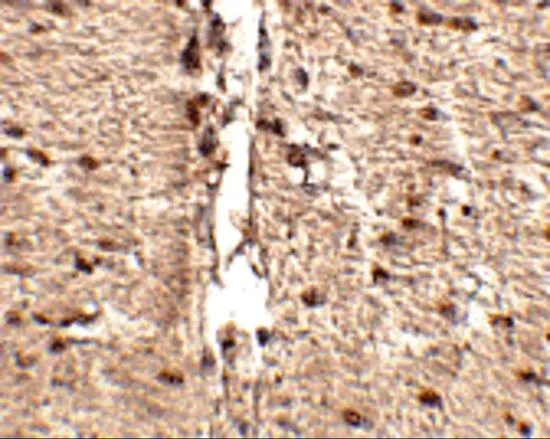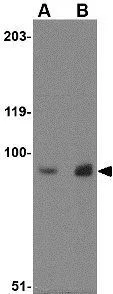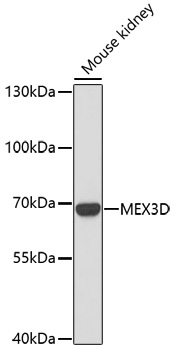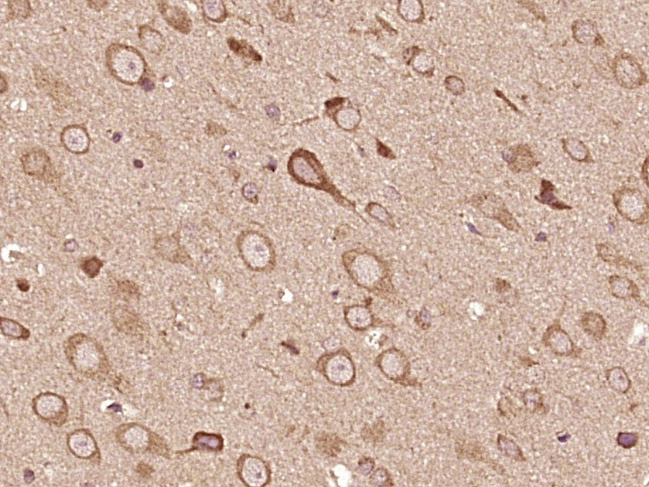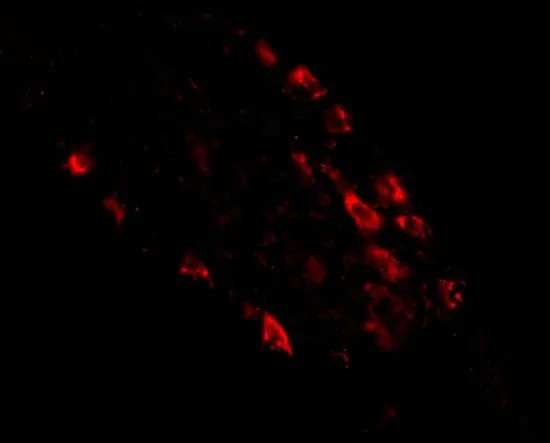
IHC-P analysis of human small intestine tissue using GTX85026 MEX3D antibody. Working concentration : 20 μg/ml
MEX3D antibody
GTX85026
ApplicationsWestern Blot, ELISA, ImmunoHistoChemistry, ImmunoHistoChemistry Paraffin
Product group Antibodies
ReactivityHuman
TargetMEX3D
Overview
- SupplierGeneTex
- Product NameMEX3D antibody
- Delivery Days Customer9
- Application Supplier NoteWB: 1 - 2 microg/mL. IHC-P: 2.5 microg/mL. *Optimal dilutions/concentrations should be determined by the researcher.Not tested in other applications.
- ApplicationsWestern Blot, ELISA, ImmunoHistoChemistry, ImmunoHistoChemistry Paraffin
- CertificationResearch Use Only
- ClonalityPolyclonal
- Concentration1 mg/ml
- ConjugateUnconjugated
- Gene ID399664
- Target nameMEX3D
- Target descriptionmex-3 RNA binding family member D
- Target synonymsMEX-3D, MEX3, OK/SW-cl.4, RKHD1, RNF193, TINO, RNA-binding protein MEX3D, RING finger and KH domain-containing protein 1, RING finger protein 193, bcl-2 ARE RNA binding protein, ring finger (C3HC4 type) and KH domain containing 1, ring finger and KH domain containing 1
- HostRabbit
- IsotypeIgG
- Protein IDQ86XN8
- Protein NameRNA-binding protein MEX3D
- Scientific DescriptionRkhd1, also known as TINO or MEX3D is a member of a novel family of four homologous human MEX3 proteins each containing two heterogeneous nuclear ribonucleoprotein K homology (KH) domains and one carboxy-terminal RING finger module. MEX3 proteins, including Rkhd1, are phosphoproteins that bind RNA through their KH domains and shuttle between the nucleus and the cytoplasm via the CRM1 export pathway. These proteins are a novel family of evolutionarily conserved RNA-binding proteins, differentially recruited to P bodies and potentially involved in post-transcriptional regulatory mechanisms. Rkhd1 binds to the AU-rich element in the 3-untranslated region of Bcl-2 mRNA and is thought to be a negative regulator of Bcl-2 expression. Rkhd3 and Rkhd4, but not Rkhd1, co-localize with both the hDcp1a decapping factor and Argonaute (Ago) proteins in processing bodies (P bodies), recently characterized as centers of mRNA turnover.
- ReactivityHuman
- Storage Instruction-20°C or -80°C,2°C to 8°C
- UNSPSC41116161

